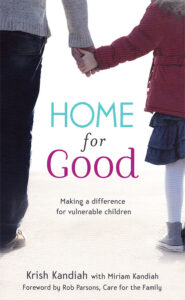What are your first thoughts when you hear the words fostering and adoption?
With around 90,000 children in the UK now being ‘looked after’ by local authorities, it’s worth thinking about how your toddler group can support these families.
Fostering provides children who cannot live with their own families with a temporary family home. Some foster carers focus on providing short-term respite cover, and others may have a child placed with them for several years. When a child leaves a foster carer’s home they might return to their birth family or be adopted, or if they’re old enough, they may go on to live independently.
Adoption is the legal process whereby one child or several siblings who cannot be brought up within their birth family, become full, permanent members of a new family. Adopters become the child’s legal parents with the same rights and responsibilities as if the child was born to them.
It’s worth noting that there are also many grandparents and other family members who may not be formally fostering a child, but who provide full-time ‘kinship care’ (or ‘special guardianship’) for a child, whilst their own parents are unable to appropriately care for them.
Difficult experiences
Many of these children have experienced significant distress or neglect in their young lives, and all of them have suffered the incredible loss of having to leave their birth parents. They may have been moved from one placement to another, and as a result they may well feel insecure, confused, scared and maybe even act aggressively.
The difficult behaviours and attitudes they might exhibit can feel like an impossible challenge for their parents or carers. However as toddler group leaders if you can look beyond the ‘naughty’ behaviour you may well find a child who is frightened and overwhelmed.
What can we do?
It will make a huge difference to parents and carers if your toddler group can welcome and support these families. Consider doing the following:
Ask parents and carers what they need, and if there is anything you can do to make life easier for them.
Managing behaviour in a traumatised child requires very different strategies than for most toddlers, so ask the parent or carer how you can best support them as they deal with their child within the group.
Children with a difficult start in life can be quite demanding, so give the adoptive parents and foster carers a much needed break by playing with their child.
Not everyone will know a child is adopted, and it’s important that leaders don’t tell other parents without the adopter’s permission. Respect the fact that some adopters want to feel like a ‘regular’ parent or may not want to get into long conversations on the topic.
When foster carers take in a new child, it’s often a demanding and stressful time. Encourage parents in the group to make meals for them, just as you might do for a parent who has had a new baby.
If they’re willing, link parents and carers to others in similar situations, and tell them about the Home for Good project.
Ask one of the other mums to help make sure the parents and carers are included in all social aspects of the group, and consider keeping in touch outside of the group.
It can be tempting to want to know all about the child’s background or challenges. Parents and carers are often not permitted to divulge much about their children so avoid asking too many questions.
If your toddler group has a waiting list, consider having a policy that you will give foster carers an open place as soon as a child is placed in their care.
And of course, do pray for them.
Providing a welcoming, supportive and non-judgemental environment to some of our most troubled children will make a huge difference to them. If you’d like to understand more about fostering and adoption, look at our Home for Good website. You’ll also find more information about Attachment Disorder, which will help you in your understanding of the behaviour of looked after children, and how to effectively support them.

Why not get hold of the Home for Good book, available to buy in the Care for the Family shop, and pass it on to your friends or church leaders. It’s an inspiring and eye-opening read!
Share on social media
Help us support families today
At Care for the Family we support couples, parents and those who have been bereaved. If you would be able to make a one off donation to support our work, we would be very grateful. Thank you.
